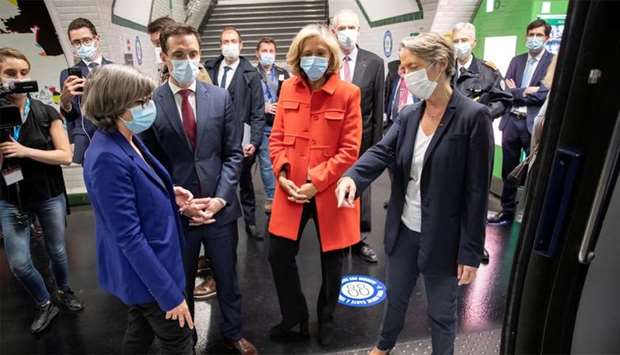Millions of people in France and Spain counted down to the relaxation of strict coronavirus lockdowns on Monday, hopes of release from their homes laced with fears of a second wave of a pandemic that has killed over 280,000 worldwide and wrought economic disaster.
In France, people will be able to walk outside for the first time in nearly eight weeks without filling in a permit, teachers will start to return to schools, and some shops will reopen.
Restaurants, theatres and cinemas will however remain closed.
Spaniards outside of urban hotspots such as Madrid and Barcelona — which remain under lockdown — eagerly made plans to meet friends and family in restaurants that have outdoor spaces.
But the anticipation of regained freedom was tinged by concern.
With millions out of work and economies flatlining — including in the United States, where 20mn lost their jobs in April — governments are desperate to reopen, but most are choosing a gradual approach.
Prime Minister Boris Johnson outlined an easing of Britain's stay-at-home orders in a televised address on Sunday night, in what he called "the first sketch of a road map for reopening society."
Johnson said the aim of loosening of the nearly two-month lockdown was to cautiously awaken the economy while bearing in mind "the science, the data and public health."
Schools and shops could begin a phased reopening starting in June, he said, while the businesses in the hospitality industry, like hotels and restaurants, would probably not be able to reopen until July at the earliest.
He said that from Wednesday people could start spending more time outside their homes, including sunbathing in local parks, car travel to other destinations, and playing outdoor sports with people of the same household.
European officials have been emboldened by declining death rates — France's toll of 70 on Sunday was its lowest since early April and Spain's daily fatalities have dropped below 200.
But the risk of a second wave was underscored by a resurgence in South Korea, widely praised for its handling of an initial outbreak but now forced to shut all clubs in the capital Seoul after a cluster of infections was confirmed
China reported the first infection in over a month on Sunday in Wuhan, where the outbreak first started late last year before it went on to infect more than four mn worldwide.
And in Germany there was uncertainty too with at least one district forced to reimpose restrictions after an outbreak at a meat processing plant.
Belgium, Germany and Greece are among other European nations set to ease lockdowns on Monday.
Turkey had already eased some restrictions and let over-65s out for the first time on Sunday.
The Middle East's most-affected country, Iran, has also relaxed its lockdown measures and bazaars and shopping centres in the capital Tehran were bustling again after being nearly deserted for weeks.
And the resumption of league football in Europe was dealt a blow after confirmation of clusters of infections among players in Spain, Germany and Portugal.
Football bosses in all three countries, however, insisted that season restarts planned for the coming weeks were still on track.
As some of the hardest-hit countries prepare to relax their restrictions, Britain's recovery remained slightly behind its European counterparts.
Even further behind are Russia and Brazil, which both passed grim milestones on Sunday.
Russia's caseload surpassed 200,000 and is expected to become the highest figure in Europe within days, even as the number of deaths remains relatively low at fewer than 2,000.
While officials say the figures reveal the effectiveness of Russia's testing regime, an opposition-allied doctors union said the authorities were underreporting deaths of medics.
For Brazil, the signs are more ominous.
Officials confirmed more than 10,000 had now died in the hardest-hit Latin American country but scientists warned that the real figures could be many times higher, given a lack of widespread testing.
President Jair Bolsonaro and his ally President Donald Trump have repeatedly called for their economies to be reopened even as the virus spreads through their populations — more than 1,000 people are dying each day in the US.
The disease has also moved into the White House inner circle, with the US government's top disease expert Anthony Fauci reportedly intending to self-isolate after possible exposure to an infected White House aide.
But Trump advisers were appearing on talk shows to push for an end to locally imposed lockdowns.
Treasury Secretary Steven Mnuchin told Fox that the real danger was not reopening, adding: "You're talking about what would be permanent economic damage to the American public."
Small anti-lockdown protests have meanwhile swept the globe, with some demonstrators arguing that such restrictions violate their rights.
Ten people were arrested and a police officer injured in the Australian city of Melbourne on Sunday in the latest such protest, where around 150 people gathered.

